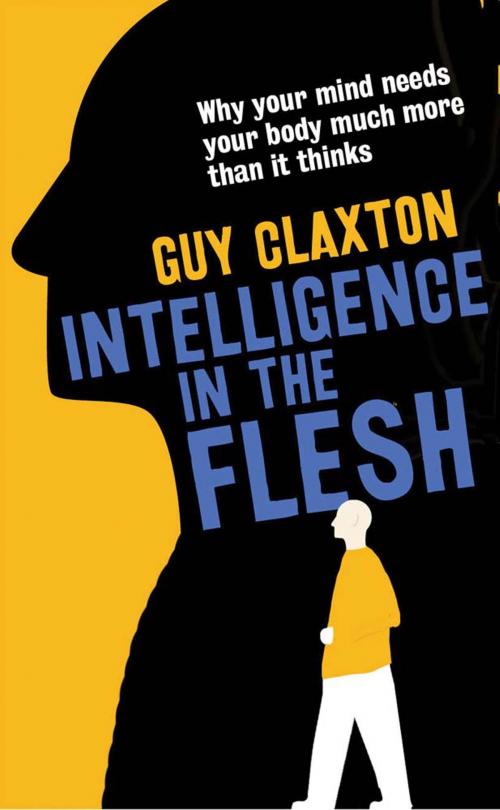Intelligence in the Flesh
Why Your Mind Needs Your Body Much More Than It Thinks
Nonfiction, Health & Well Being, Medical, Specialties, Internal Medicine, Neuroscience, Psychology, Neuropsychology, Science & Nature, Science, Biological Sciences| Author: | Guy Claxton | ISBN: | 9780300215977 |
| Publisher: | Yale University Press | Publication: | August 25, 2015 |
| Imprint: | Yale University Press | Language: | English |
| Author: | Guy Claxton |
| ISBN: | 9780300215977 |
| Publisher: | Yale University Press |
| Publication: | August 25, 2015 |
| Imprint: | Yale University Press |
| Language: | English |
If you think that intelligence emanates from the mind and that reasoning necessitates the suppression of emotion, you’d better think again—or rather not “think” at all. In his provocative new book, Guy Claxton draws on the latest findings in neuroscience and psychology to reveal how our bodies—long dismissed as mere conveyances—actually constitute the core of our intelligent life. From the endocrinal means by which our organs communicate to the instantaneous decision-making prompted by external phenomena, our bodies are able to perform intelligent computations that we either overlook or wrongly attribute to our brains.
Embodied intelligence is one of the most exciting areas in contemporary philosophy and neuropsychology, and Claxton shows how the privilege given to cerebral thinking has taken a toll on modern society, resulting in too much screen time, the diminishment of skilled craftsmanship, and an overvaluing of white-collar over blue-collar labor. Discussing techniques that will help us reconnect with our bodies, Claxton shows how an appreciation of the body’s intelligence will enrich all our lives.
Embodied intelligence is one of the most exciting areas in contemporary philosophy and neuropsychology, and Claxton shows how the privilege given to cerebral thinking has taken a toll on modern society, resulting in too much screen time, the diminishment of skilled craftsmanship, and an overvaluing of white-collar over blue-collar labor. Discussing techniques that will help us reconnect with our bodies, Claxton shows how an appreciation of the body’s intelligence will enrich all our lives.
If you think that intelligence emanates from the mind and that reasoning necessitates the suppression of emotion, you’d better think again—or rather not “think” at all. In his provocative new book, Guy Claxton draws on the latest findings in neuroscience and psychology to reveal how our bodies—long dismissed as mere conveyances—actually constitute the core of our intelligent life. From the endocrinal means by which our organs communicate to the instantaneous decision-making prompted by external phenomena, our bodies are able to perform intelligent computations that we either overlook or wrongly attribute to our brains.
Embodied intelligence is one of the most exciting areas in contemporary philosophy and neuropsychology, and Claxton shows how the privilege given to cerebral thinking has taken a toll on modern society, resulting in too much screen time, the diminishment of skilled craftsmanship, and an overvaluing of white-collar over blue-collar labor. Discussing techniques that will help us reconnect with our bodies, Claxton shows how an appreciation of the body’s intelligence will enrich all our lives.
Embodied intelligence is one of the most exciting areas in contemporary philosophy and neuropsychology, and Claxton shows how the privilege given to cerebral thinking has taken a toll on modern society, resulting in too much screen time, the diminishment of skilled craftsmanship, and an overvaluing of white-collar over blue-collar labor. Discussing techniques that will help us reconnect with our bodies, Claxton shows how an appreciation of the body’s intelligence will enrich all our lives.















